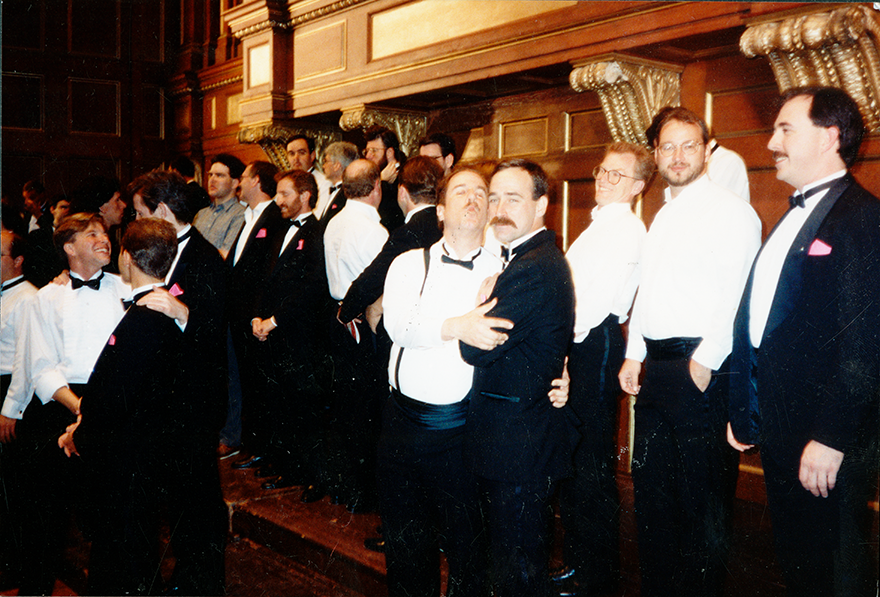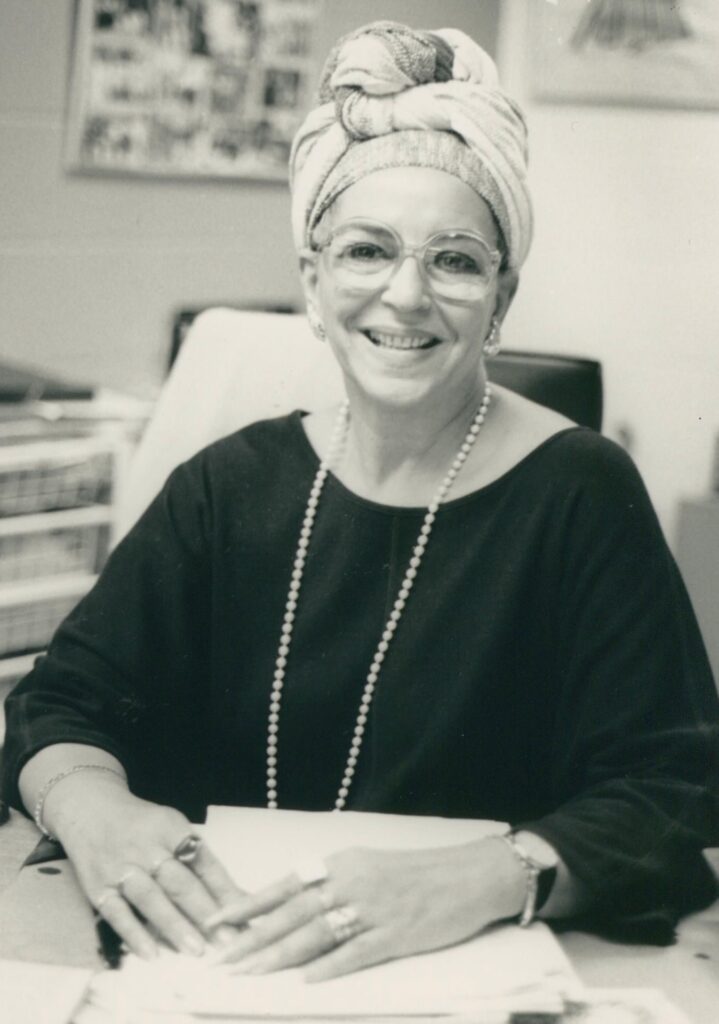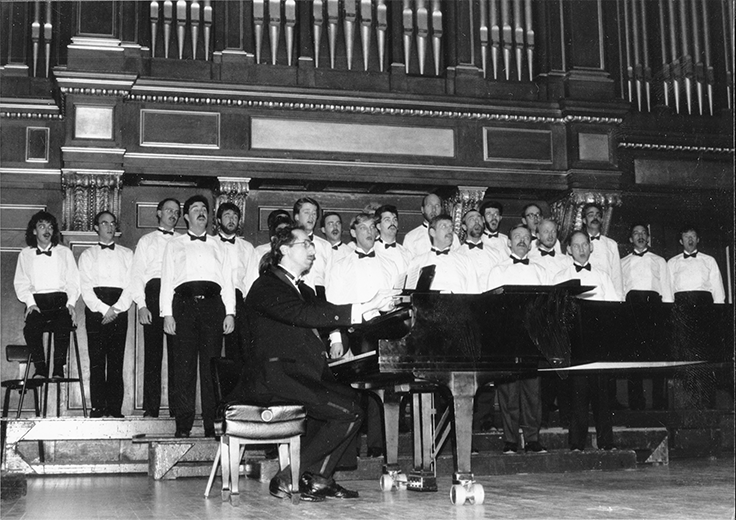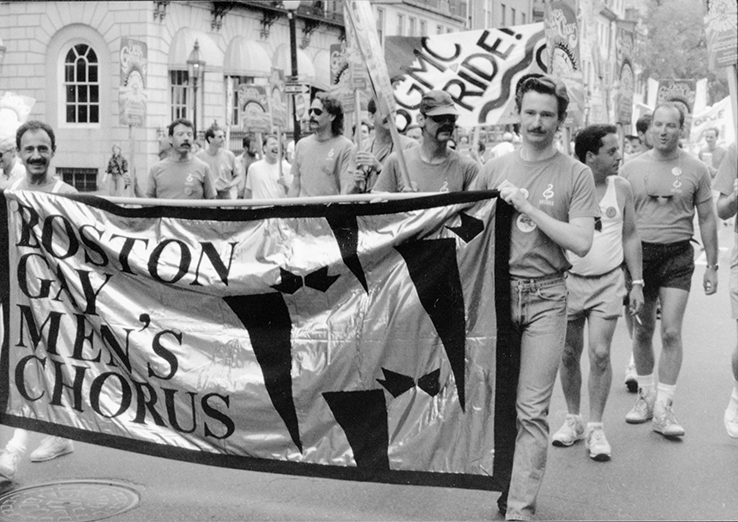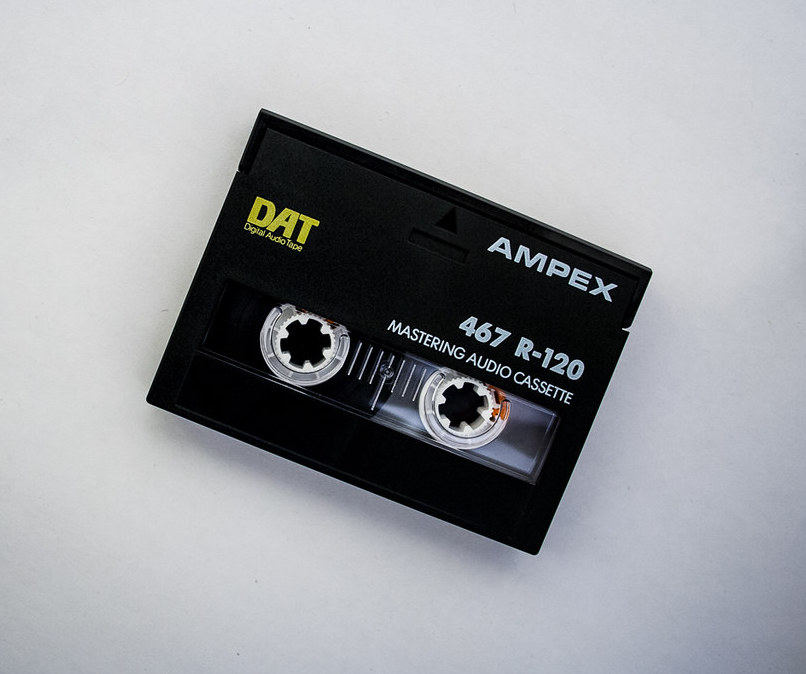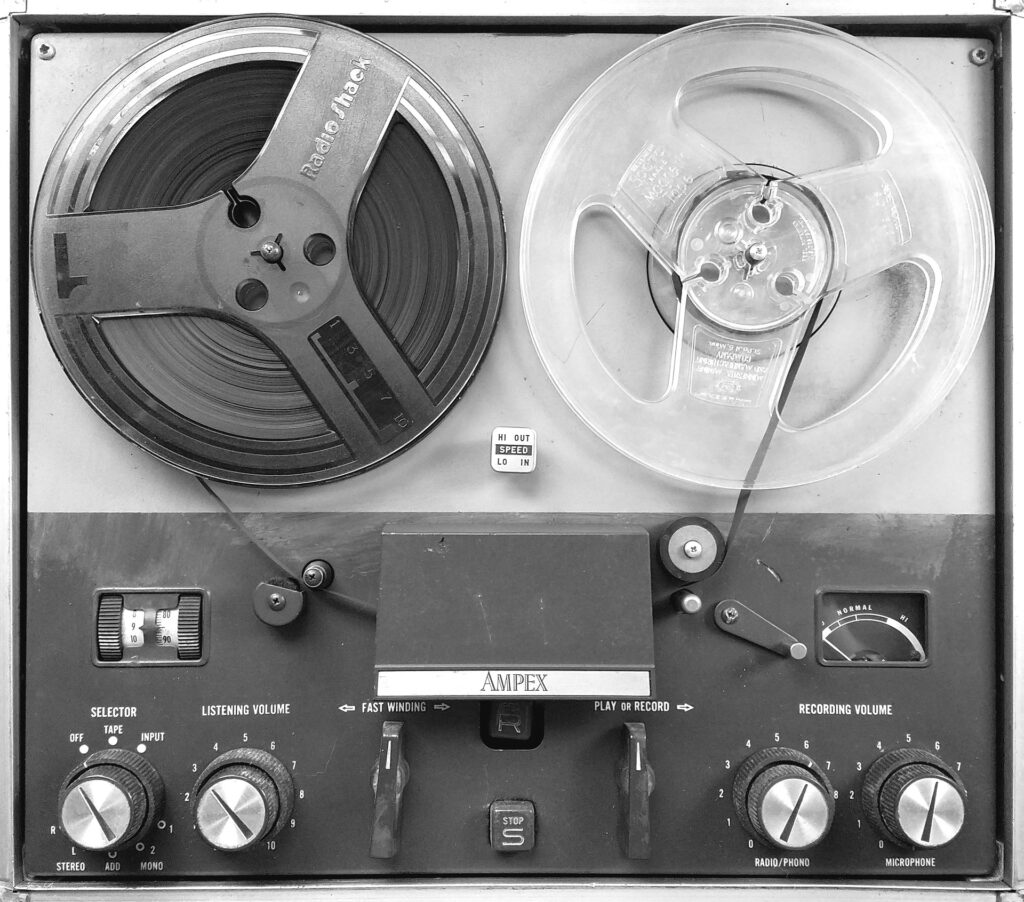Ready to Research: The Newly Processed Boston Gay Men’s Chorus Records and the Frieda Garcia Papers
Introducing the Boston Gay Men’s Chorus records finding aid
By Dominique Medal
Records of the Boston Gay Men’s Chorus, who have been singing in Boston and beyond for more than 40 years, have been processed and are open for research in the Northeastern University Archives and Special Collections. A guide to the collection is available and Series 2 doubles as a chronology of the Chorus’ performances, special appearances, and international tours since its founding in 1982.
The Boston Gay Men’s Chorus was part of a wave of gay choruses established in the wake of the San Francisco Gay Men’s Chorus national tour in 1981. Since then, the Boston Chorus has grown to more than 200 singing members and has toured Europe, the Middle East, and South Africa. It is one of the largest community-based choral groups in New England.
The collection documents the Chorus’ live performances through audio and video recordings, photographs, concert programs, posters and marketing materials, and planning and logistics files. Also included are studio recordings and materials pertaining to the Chorus’ membership in the Gay and Lesbian Association of Choruses, which hosts the triennial GALA Festival for LGBTQ choruses. The collection also documents the Chorus’ advocacy work, internal administration, and fundraising efforts.
A selection of photographs and promotional materials have already been digitized and uploaded to the Digital Repository Service.
Introducing the Frieda Garcia papers finding aid
By Irene Gates
Since starting as Processing Archivist at Northeastern University earlier this year, I’ve been lucky enough to work on the papers of Frieda Garcia, a beloved Boston-based community leader and activist. Garcia received her B.A. from The New School, where I previously worked, a coincidence that made processing her collection a welcome bridge between my past and present positions.
Throughout her career, Garcia advocated for Hispanic and Black communities in Boston, bilingual education, women’s rights, and multicultural media. Her papers, which she donated in 2015, document her work on these themes with community organizations La Alianza Hispana, United South End Settlements (USES), and the Roxbury Multi-Service Center. It also covers her service on several mayoral commissions and boards of organizations such as The Boston Foundation and the Isabella Stewart Gardner Museum, and other initiatives and conferences in which she participated. Annual reports to the USES Board of Directors, reports documenting Boston’s South End and Roxbury neighborhoods, and correspondence with individuals across the city are examples of materials in the collection.
To learn more about Frieda Garcia’s papers, explore the finding aid, as well as several born-digital files and digitized analog content from the collection, available in the Digital Repository Service.
